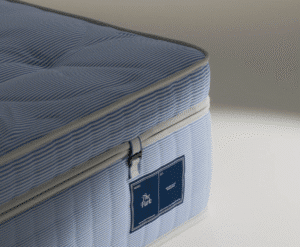Everything You Need to Know About Farting in Your Sleep
Understanding Farting in Your Sleep
Can you fart in your sleep? Absolutely! Nighttime flatulence is a common phenomenon, stemming from your digestive system processing food while you slumber. Here’s a detailed exploration to help you understand what’s happening:
– Farting is a Natural Bodily Function: It’s not just a quirky occurrence; it’s part of your body’s normal processes.
– Muscle Relaxation During Sleep: As you drift into deeper stages of sleep, your body relaxes, including the muscles responsible for controlling gas release.
– Diet and Lifestyle Play a Role: What you eat and how you live can significantly influence the frequency and volume of nighttime farts.
Flatulence, or farting, occurs as digestive bacteria break down food in your intestines, releasing gases such as nitrogen, oxygen, carbon dioxide, hydrogen, and occasionally methane. This breakdown doesn’t pause during the night, making it quite normal to pass gas while you sleep. In deep sleep, the relaxation of your anal sphincter allows gas to escape more freely. Notably, as renowned sleep researcher William C. Dement once said, “Sleep is the golden chain that ties health and our bodies together.”
After grappling with sleep issues myself, I founded Yawnder to delve into questions like, “Can you fart in your sleep?” Join me as we unpack this topic and discuss ways to manage nighttime flatulence.
The Science Behind Farting in Your Sleep
Why Does It Happen?
Yes, you can indeed fart in your sleep due to the periodic relaxation of the anal sphincter, the muscle responsible for controlling gas and fecal release. This muscle never fully shuts off, allowing for the escape of gas even while you’re unconscious.
Intestinal Bacteria: These microorganisms play a crucial role in digestion. They break down undigested carbohydrates, producing natural gases that accumulate in your intestines, necessitating their release.
Additionally, swallowed air and the neutralization of stomach acid contribute to gas build-up. When you consume food or drink, swallowing air is unavoidable. This can further enhance the gas in your digestive system, particularly when stomach acid is neutralized during digestion, releasing carbon dioxide in the process.
How Common is Nighttime Flatulence?
Farting in your sleep is more common than you might think. On average, individuals pass gas 13 to 21 times a day, and the night time is no exception. The anal sphincter’s relaxed state during sleep promotes an easier release of gas. While you may remain blissfully unaware, your partner might be less fortunate as they notice the sound or scent. Dr. Lizz Esther Kinyua highlights that a gas-promoting diet can increase nighttime flatulence, making partner awareness a common realization.
Ultimately, farting during sleep is a normal aspect of digestion, influenced by various factors, including diet and muscle relaxation. Being informed can help you manage and reduce nighttime flatulence more effectively.
Causes of Farting During Sleep
Multiple aspects contribute to the issue of nighttime flatulence. Understanding these can allow for better management strategies.
Foods That Cause Gas
Certain foods are notorious for increasing gas production:
– High-Fiber Foods: Items such as beans, lentils, fruits, and whole grains, while essential for digestive health, can lead to increased gas production.
– Carbonated Beverages: Drinks like soda and beer contain carbon dioxide, which can be released as gas either through burping or, yes, farting.
– Artificial Sweeteners: Sugar substitutes like sorbitol, mannitol, and xylitol are not fully absorbed in your digestive system, leading to gas.
Lifestyle Factors
Your everyday habits also play a role in gas accumulation:
– Eating Habits: Consuming food quickly, drinking through straws, and chewing gum can lead to swallowed air that contributes to bloating and gas buildup.
– Smoking: This habit can inadvertently introduce air into your digestive tract.
– Stress: Stress impacts your digestion, often leading to increased gas and bloating.
Dr. Virginia Blackwell suggests simple lifestyle changes to mitigate gas, such as eating at a more leisurely pace and curbing habits that contribute to swallowed air.
Medical Conditions
In some cases, excessive gas can be attributed to medical conditions:
– Irritable Bowel Syndrome (IBS): Affects the large intestine and can cause gas, bloating, and abdominal pain.
– Celiac Disease: An immune response to gluten that can provoke gas and other digestive discomforts.
– Gastroesophageal Reflux Disease (GERD): This condition can elevate gas production and discomfort at night.
If dietary or lifestyle adjustments don’t help, consulting a healthcare provider can help pinpoint any underlying issues.
How to Reduce Farting in Your Sleep
Addressing nighttime flatulence involves a combination of dietary changes, lifestyle adjustments, and potential medical treatments. Here’s how to tackle this concern effectively:
Dietary Changes
– Limit Gas-Inducing Foods: Reduce the intake of beans, broccoli, and other gas-heavy vegetables, especially in the evening.
– Opt for Smaller Meals: Eating smaller, more frequent meals can ease the digestive process and reduce the likelihood of gas.
– Incorporate Probiotics: Foods or supplements containing probiotics can nurture a healthy gut microbiome, potentially lowering gas production.
Lifestyle Adjustments
– Eat Slowly: Slowing down during meals can minimize air swallowing, thereby reducing gas.
– Avoid Chewing Gum: This habit can encourage air ingestion, exacerbating flatulence.
– Quit Smoking: Besides the health benefits, quitting smoking can also help reduce the gas content in your digestive system.
Medical Treatments
Consider over-the-counter solutions if lifestyle adjustments aren’t effective:
– Over-the-Counter Anti-Gas Medications: Products like Beano or simethicone can ease gas issues.
– Activated Charcoal: This may help absorb gas in the digestive system.
If self-help measures fall short, consult a medical professional to identify potential underlying conditions and explore tailored treatments.
Conclusion
Farting in your sleep is a common and natural aspect of digestion that can be both embarrassing and disruptive. However, understanding the causes and adopting a few practical changes can significantly lessen the frequency and impact of this phenomenon.
At Yawnder, we’re committed to helping you improve your sleep quality and overall health. Our breadth of sleep-related services can provide invaluable insights into your sleep habits and any related digestive issues. If you’re experiencing concerns about your sleep or nighttime flatulence, consider our resources and personalized sleep studies.
With the right knowledge and adjustments, you can foster a peaceful night’s sleep, both for yourself and anyone sharing your space.


















